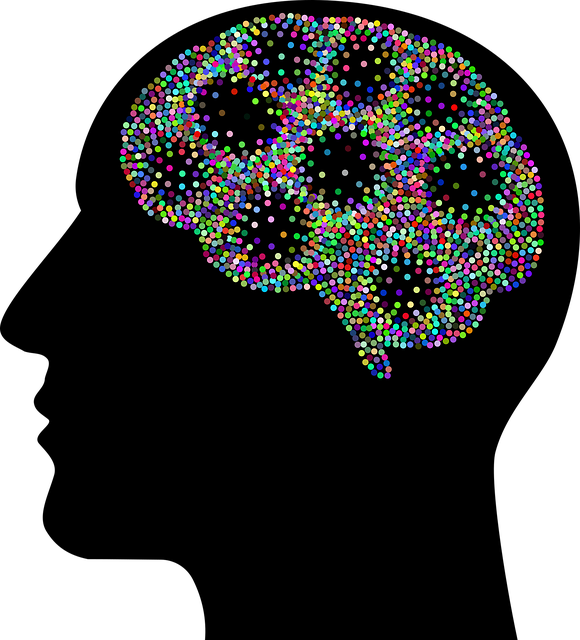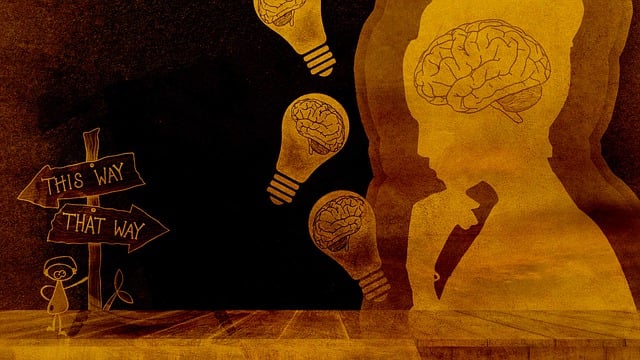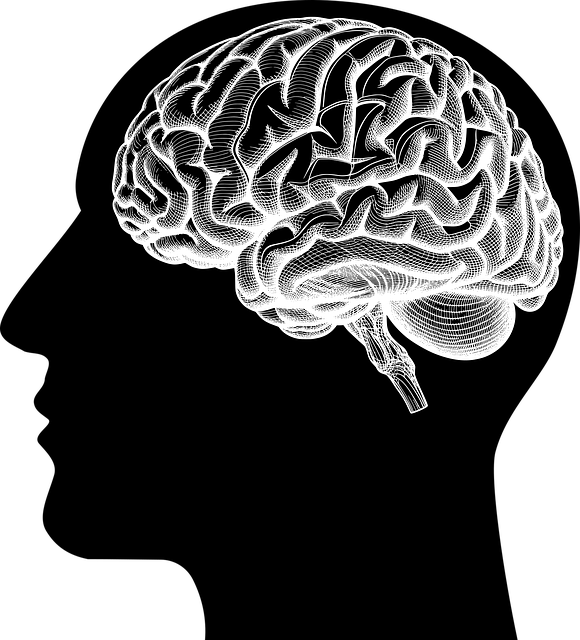The media's portrayal of mental health significantly shapes societal perceptions, impacting public understanding and responses. Inconclusive or stereotypical depictions can perpetuate stigma and discrimination, hindering support for those struggling with mental wellness, particularly in Louisville where spiritual-religious issues often intersect with mental health concerns. Positive media representations encourage early intervention and the development of Mental Wellness Coaching Programs. Louisville's spiritual-religious community plays a vital role in combating mental illness stigma through awareness initiatives, offering safe spaces for counseling and prayer groups. By collaborating with media platforms, diversifying narratives, and portraying recovery as a spectrum, they can demystify mental illness and foster understanding. This partnership, leveraging Louisville Spiritual-Religious Issues Therapy, has the potential to revolutionize society's support for mental health challenges.
“The media’s portrayal of mental illness significantly influences societal perceptions, often perpetuating harmful stereotypes or, conversely, fostering understanding. This article explores the impact of media representation on mental health and delves into innovative solutions.
We focus specifically on Louisville’s spiritual-religious community, where stigma can be a barrier to seeking therapy. By examining effective strategies, we aim to enhance positive mental illness representation in media and society. Additionally, we emphasize the role of collaboration between media outlets and communities in fostering empathy and support for those facing mental health challenges.”
- Understanding the Impact of Media Portrayal on Mental Health Perception
- Louisville's Spiritual-Religious Community and Mental Illness Stigma
- Effective Strategies to Enhance Positive Mental Illness Representation
- Fostering Empathy and Support through Media and Community Collaboration
Understanding the Impact of Media Portrayal on Mental Health Perception

The media plays a powerful role in shaping societal perceptions about mental health. The way mental illness is portrayed in films, television shows, and news coverage significantly influences how the general public understands and responds to these conditions. Often, inaccurate or stereotypical representations can lead to stigma, discrimination, and a lack of empathy towards individuals struggling with their mental wellness. This is especially pertinent in communities like Louisville, where spiritual-religious issues may also intertwine with mental health concerns.
For instance, media often depicts mental illness as an exceptional, rare occurrence, which can discourage those in need from seeking help. Conversely, positive representations through storytelling and realistic portrayals can foster Mental Wellness Coaching Programs Development and encourage early intervention. By promoting Stress Reduction Methods and Mental Health Awareness, Louisville’s therapy services can be better equipped to support individuals navigating these challenges, ultimately contributing to a more compassionate and informed community.
Louisville's Spiritual-Religious Community and Mental Illness Stigma

Louisville’s spiritual-religious community plays a pivotal role in challenging mental illness stigma prevalent in society. Many religious organizations in the city actively promote mental health awareness, dispelling misconceptions and fostering an environment of understanding and support for individuals struggling with various mental health conditions. They offer prayer groups, counseling sessions, and community outreach programs that provide a safe space for those seeking help. These initiatives not only cater to the immediate needs of individuals but also contribute to a broader mental health policy analysis and advocacy effort.
By integrating compassion cultivation practices into their programs, Louisville’s spiritual-religious community boosts the confidence of individuals facing mental illness. This approach encourages open dialogue about mental health issues, reduces stigma, and promotes early intervention and treatment. Through collaborative efforts, these communities are making significant strides in shaping a more inclusive and supportive society where mental well-being is prioritized alongside physical health.
Effective Strategies to Enhance Positive Mental Illness Representation

To enhance positive mental illness representation, media platforms and creators should adopt strategies that promote accurate and nuanced portrayals. This includes collaborating with mental health professionals to ensure stories are authentic and respectful, diversifying narratives to represent various mental health experiences, and showcasing recovery as a spectrum rather than a linear journey. Encouraging open dialogue through conflict resolution techniques can help demystify mental illness, while incorporating self-care routine development for better mental health into storylines can offer viewers practical strategies to manage their own well-being. Furthermore, providing mental wellness journaling exercise guidance within media content allows audiences to engage actively with themes of mental health and find personal connections.
In Louisville, where spiritual-religious issues therapy is readily accessible, these strategies can be particularly impactful. By implementing them, media can contribute to a more inclusive and supportive environment for individuals dealing with mental illness, fostering understanding and reducing stigma through compelling storytelling.
Fostering Empathy and Support through Media and Community Collaboration

In a world where media plays a significant role in shaping public perception, accurate and empathetic representation of mental illness is paramount. By fostering collaboration between media outlets and supportive communities, such as those found in Louisville’s spiritual-religious therapy circles, we can challenge stigmatized narratives and promote understanding. This partnership enables the sharing of diverse stories that highlight the human experience of mental health struggles, encouraging viewers to empathize and offer support.
Through this collective effort, media platforms can contribute to the broader emotional healing processes by providing resources and information on stress management and mindfulness meditation. By normalizing conversations about mental illness, we create a safer space for individuals to seek help and initiate their journeys towards recovery. Such initiatives have the potential to revolutionize how society views and supports those facing these challenges.
In conclusion, addressing mental illness representation in media is a vital step towards fostering empathy, reducing stigma, and improving mental health support. By implementing effective strategies, such as promoting positive narratives, collaborating with communities like Louisville’s spiritual-religious groups, and enhancing accessibility to therapy, we can challenge harmful stereotypes and create a more inclusive society. These efforts are crucial in ensuring that individuals struggling with mental health issues receive the understanding and support they deserve, ultimately leading to better outcomes and enhanced well-being for all.











